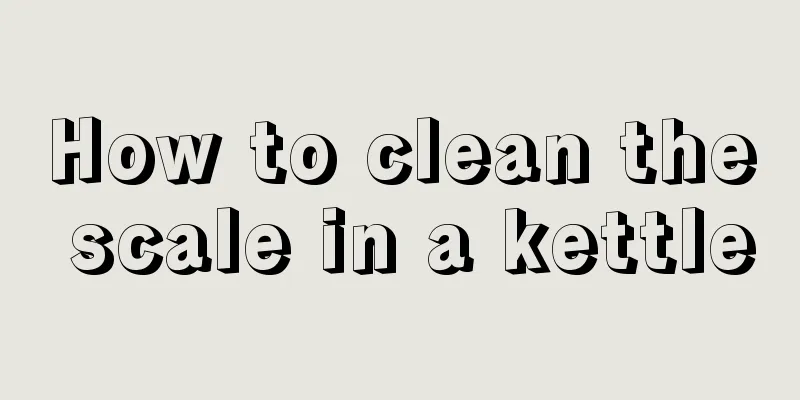How to squeeze juice to reduce nutrient loss?

|
Fruits and vegetables are plentiful in this season, and drinking a glass of freshly squeezed fruit and vegetable juice is refreshing. Nowadays, "juicers" and "pulpers" are popular. Some of them claim to be able to break cells and make nutrients easier to absorb, while others claim to be able to remove heavy metal pollution and retain fruit nutrients... Are these claims reliable? Does juicing lose nutrients? Of course, the main loss is the loss of vitamins and antioxidants, even if you drink it immediately after squeezing. This is because the cells of fruits and vegetables have complex ultrastructures. It is like a unit with many rooms. Each room has its own function and contains different things, so they cannot be mixed together. For example, vitamin C must not meet with various oxidases, otherwise they will interact with each other. However, when juicing, the rotating blades destroy all the cells and everything is mixed together. In this way, vitamin C encounters multiple oxidases and naturally suffers heavy losses. In addition to vitamin C, antioxidant ingredients such as flavonoids and anthocyanins will also be lost to varying degrees. As for insoluble fiber, of course it will not run into the juice. Insoluble elements such as calcium will also be retained in the slag. How long can I keep the juice after squeezing it? If the juice is not boiled, it should be drunk immediately after squeezing and cannot be stored. It can be said that the loss of vitamins and antioxidants is increasing every minute. If the enzyme has been inactivated after blanching and then juicing, it should be okay to store it in a sealed container in the refrigerator for a day. Be careful to minimize the contact between juice and air to avoid oxidation and discoloration. Juice that is not blanched will turn brown very easily. Browning does not mean that the fruit and vegetables are toxic or harmful, and they can still be drunk. It just means that the polyphenol health-promoting ingredients in fruits and vegetables are oxidized when exposed to oxygen, and the antioxidant effect will decrease. At the same time, the flavor will gradually change during storage and lose its original freshness and deliciousness. How to reduce nutrient loss when juicing? Many people don’t know that in commercial production of fruit and vegetable juice, the fruits and vegetables often need to be blanched. In other words, the fruits and vegetables need to be slightly blanched in boiling water to "kill" the oxidases and soften the tissues slightly before juicing them. This not only reduces the loss of vitamins and increases the juice yield, but also makes the juice bright in color and less likely to turn brown. Especially those vegetables that are not sour, such as carrots, greens, celery, and sweet corn, must be blanched before juicing. Should I eat the residue after juicing? If you plan to eat the residue, it will obviously taste very bad. Since you are going to eat the residue anyway, why bother to make juice? Wouldn't it be better to just eat the whole fruits and vegetables? The residue is rich in fiber, which is good for people who need to relieve constipation and regulate blood lipids, but not suitable for those who are prone to diarrhea and bloating. Will drinking fruit and vegetable juice make you fat? Compared with fresh fruits, on the one hand, the dietary fiber and some health-promoting ingredients in fruits are removed during the juice production process. On the other hand, juices are often very sweet. The sugar content of apple juice and orange juice is more than 8%, and the sugar content of grape juice can even be as high as 15-20%, which is twice the sugar content of ordinary sweet drinks! Drinking a glass of pure juice can consume 16-40 grams of sugar. 40 grams of sugar is equivalent to half a bowl of rice. How can you not gain weight if you drink it in addition to the three meals a day? In addition, fruit is in solid state and needs to be chewed, so the stomach empties slowly; while fruit juice is in liquid state and does not require chewing, so it empties quickly from the stomach and is absorbed quickly in the intestines. The speed of drinking juice is much faster than the speed of eating fruit, while the feeling of fullness brought by drinking juice is much less than the feeling of fullness brought by eating fruit. Therefore, it is better for those who want to lose weight to eat the food whole. Juicing is not an ideal choice. |
<<: Seven ways to rejuvenate blood vessels
>>: 9 good habits to make you fair and rosy
Recommend
The harm of sulfuric acid smell to human body
Sulfuric acid is a relatively common chemical pro...
What are the benefits of bungee jumping?
In recent years, many young people have liked som...
Will a 1-degree loose tooth heal itself?
Teeth are originally very strong, but some people...
This is what eyelid liposuction is all about
Blister eyes, also called swollen eye blisters in...
What should I do if my stomach feels cold?
A cold stomach is not a disease, it is mainly bec...
Acne and pimples
Many people cannot distinguish between blackheads...
What is esophageal squamous papilloma?
Esophageal papilloma is a benign polyp-like tumor...
What are the sequelae of craniotomy for cerebral hemorrhage?
Cerebral hemorrhage is a disease caused by ruptur...
What are the better ways to prevent liver cancer? 4 good ways to prevent liver cancer you should know
The causes of liver cancer are relatively complic...
How to treat Candida albicans infection?
There are a large number of bacteria and viruses ...
How to remove stubborn oil stains from clothes
Whenever faced with the problem of stubborn oil s...
What medicine is good for removing fibroids
Although fibroma is a common benign fibroma in li...
A girl's face changed dramatically after eating fast food for a year!
As people's pace of life quickens and pressur...
What is lower gastrointestinal tract radiography?
Some people may have indigestion problems. There ...
What are the symptoms of nasopharyngeal carcinoma and pharyngitis
What are the symptoms of nasopharyngeal cancer an...









